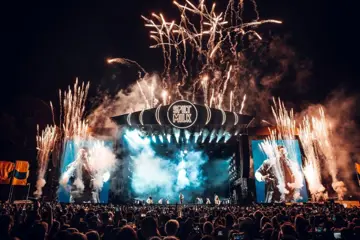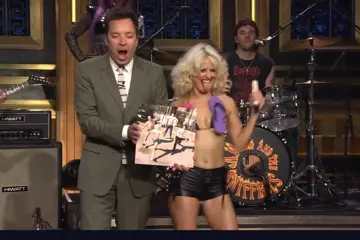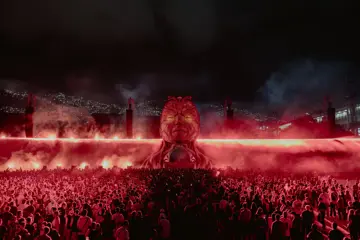CONTENT WARNING: This article contains discussion of sexual assault. If you or someone you know is impacted by sexual assault, domestic or family violence, call 1800RESPECT on 1800 737 732 or visit 1800RESPECT.org.au.
A new pilot research study investigating sexual assaults at Australian music festivals has been released today, finding that attendees believe sexual harassment is more common than physical violence at festivals.
Titled Safety, Sexual Harassment & Assault At Australian Music Festivals, the study was conducted by researchers at The University Of Melbourne, UNSW and Western Sydney University, in conjunction with Falls Festival.
While it was a group of 500 Falls Festival patrons (from the 2017-18 event) that were surveyed, punters were asked about their perceptions in general. Further to this, 16 people who had either experienced or been involved in responding to incidents involving sexual violence at music festivals across Australia were interviewed.
Key findings
- Of the group surveyed, 95.1% believed that sexual harassment occurs at Australian music festivals - more than physical violence (92.8%) and sexual assault (88.6%).
- 61.2% (148 people) thought that homophobic violence occurs, while 61.6% (141 people) believed transphobic violence occurs.
- 31.2% thought sexual harassment happens 'often', with a further 30.2% believing it occurs 'very often'.
- 75.2% said they were 'extremely' likely to report a sexual assault and 62% would report sexual harassment to police. The study found, however, that this number is not reflective of actions of participants who had directly experienced these forms of violence.
- Of the interview group, groping and other forms of sexual touching were found to be common in crowded moshpits and performance areas.
- It was revealed that most participants did not report to police, security or festival staff and those that did typically recalled negative responses from authority figures, such as victim-blaming, not taking the report seriously, and/or a failure to take appropriate action.
- Additionally, the group viewed the male-dominated nature of the music industry as a contributing factor to sexual violence in festival spaces.
Recommendations suggested
Festival policy and management
- Introduce clear protocols and consistent messaging about sexual violence, including consequences for perpetrators.
- Increase the number of female police and security staff working on-site.
- Develop multiple avenues for reporting sexual violence at festivals and ensure all staff are adequately trained to receive and respond to these reports.
- Implement processes for the systematic documentation of incidents of sexual violence.
- Follow through on reports with feedback to victim-survivors.
- Implement the provision of on-site access to appropriate support services.
Environment
- Provision of quiet ‘chill out’ spaces.
- Ensure security and police are distributed throughout festival spaces, including regular patrols or emergency contact points in camping grounds.
- Introduce section markers or signposting in camping grounds to improve way finding.
- Enhance lighting, particularly in isolated areas such as camping grounds.
- Ensure signage establishing behavioural standards is clearly visible throughout all spaces at festival.
- Introduce clear and consistently identifiable markers to note the location of security staff in and around performance spaces.
Cultural change
- Continued efforts to make festival line-ups more gender equitable and diverse.
- Encouragement of pro-social behaviour, such as bystander intervention.
- Encouragement of an ethic of care among festival patrons.















